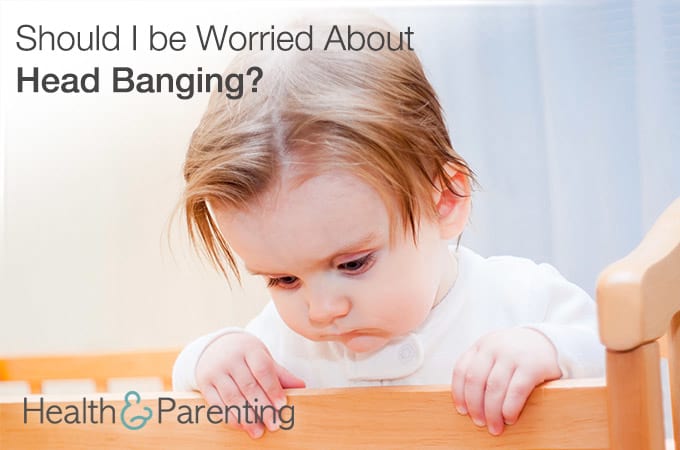Head banging in babies and toddlers is a distressing but surprisingly common behavior. It is thought that as many as one in five children go through a phase of head banging. If you’ve noticed your child banging her head against the side of her crib, you’re likely to be feeling worried about whether something is wrong. It’s not pleasant to watch, but this behavior is considered normal and shouldn’t give you too much cause for concern.
Why does my baby bang her head?
Head banging can be a self soothing behavior for some babies and toddlers, a way to help them unwind at the end of the day. Alternatively, other children may use it to distract from discomforts such as teething or ear infections. The behavior is most commonly seen in boys, and often starts in the second half of the first year. Head banging usually peaks between the age of 18 and 24 months, and most children have grown out of it by their third birthday. Some children engage in the behavior for just a few weeks, but for others it can last months or even years.
How to prevent head banging
In rare cases, head banging can be a sign of a more serious problem so it’s worth mentioning it to your child’s doctor. In most cases, however, head banging is nothing to worry about. Many parents worry that their child will hurt herself, but this is very unlikely. You may feel inclined to wrap the bars with blankets to soften the blow, but this could increase the risk of SIDS (Sudden Infant Death Syndrome) and is not advised.
Some babies bang their heads to self soothe before going to sleep. By helping your child to relax before bedtime, it may be possible to eliminate the need for head banging. Moving to a quiet room and reading stories before bed could help your child to unwind after a busy day. A relaxing bath and soothing baby massage could also help your child to prepare for bedtime.
Bedtime behaviors could also be caused by stresses during the day. Babies can quickly become overstimulated by crowds, loud noises and bright lights. They may also feel anxious when separated from their primary caregiver. Make sure you are spending enough quality time with your child during the day. Avoiding busy places probably isn’t an option, but you should make sure your baby has somewhere quiet and safe to retreat to in the event of overstimulation. A sling or wrap that snuggles your baby into your chest is a great option for this, and gives your baby the benefit of some quality cuddle time with you.
If head banging is an ongoing issue in your home, be sure to check the bolts and screws on your baby’s cot regularly. The repeated motion could cause the screws to work free, making the cot a less secure place for your baby to sleep. If you are concerned about your babies behaviour, contact your healthcare provider or pediatrician.
Written by Fiona (@Fiona_Peacock), mother, writer and lover of all things baby related.
This information is not intended to replace the advice of a trained medical doctor. Health & Parenting Ltd disclaims any liability for the decisions you make based on this information, which is provided to you on a general information basis only and not as a substitute for personalized medical advice. All contents copyright © Health & Parenting Ltd 2016. All rights reserved.










